Bailout Watch 197: The Battle Lines Are Drawn Pt. 3
And now, a few decades and several tens of billions of dollars later, we have southern politicians with automotive manufacturing facilities in their backyards. And, for some reason, they’re not feeling a particularly strong desire to spend federal taxpayers’ money on bailing out Detroit. As The Atlanta Journal Constitution puts it, “For behind the philosophical back-and-forth over government intervention, scheduled to begin Monday in the U.S. Senate, is a cut-throat, economic reality: the South has ambitions of becoming Detroit’s rival. And a federal dollar that artificially props up manufacturing on the northern end of I-75 is a dollar that hinders the creation of new economic models downstream, some Southern politicians maintain.” Par example? “Georgia’s Kia plant is scheduled to open next November, employing as many as 2,500 workers. The site is located within U.S. Rep. Lynn Westmoreland’s 3rd District. Westmoreland, like other House Republicans, voted against the $700 Wall Street bailout. He’ll vote against a Detroit rescue as well – on the grounds that it would create a slanted field of play for the workers he’ll soon represent. ‘One of the things we have constantly said is we can’t compete with some of these foreign businesses because the government has intervened in those businesses, and it makes an unfair advantage,’ Westmoreland said. ‘What we’re doing here with the auto industry is basically the same thing.'” Fine words. And the way the AJC takes him to task is classic…
“As have other states, Georgia laid out a boatload of incentives to land its auto plant, worth an estimated $415 million. But that’s not the same thing, the Georgia congressman said. ‘I don’t think we were doing that because of bad business decisions Kia was making,’ Westmoreland said. ‘We did that to get them in here, to create the jobs, to create the taxes, to put economic development into the area.'” A distinction without a difference? Maybe not. Michigan has been throwing tax breaks at American automakers for lo these many years.
The AJC’s wider point is well taken. No, not the one about laissez-faire capitalism coming back to bite Delta or Lockheed-Martin in the ass. The bit about wages. “Even if you’re a prospective Kia employee, you might not want to see Detroit fall. Wages are lower in Southern auto plants, but they’re still tied to wages hammered out between the United Auto Workers and the Detroit Three, according to [assistant research scientist for the University of Michigan’s Transportation Research Institute Bruce] Belzowski. ‘Those people wouldn’t be making the money they’re making now if not for the UAW.'” And American cars might not be as expensive.
More by Robert Farago
Latest Car Reviews
Read moreLatest Product Reviews
Read moreRecent Comments
- Bkojote Smart move if the financials work, considering the R3 has way more excitement around it than just about any Tesla product, as Tesla only seems to only excite tech illiterate guys who lost their wives mortgaging their house to buy bored apes.If Apple does in fact tie up with Rivian Tesla's goose is ultra-cooked.
- Jkross22 Tim Apple sniffing around to see if he can sucker someone else into under-RAM'ing devices to save $2/unit and force upgrade people.
- Jkross22 Not to rub salt in the wound, but why would you put your hq in some extraordinarily expensive real estate like Manhattan Beach? I know little of Fisker the person, but this reeks of ego and the desire for appearances.
- 3-On-The-Tree I’ve responded to several bike accidents where if the guy wasn’t wearing a helmet he would’ve been in a casket. Plus it saves your hearing.
- Wjtinfwb Nice cars and a find if you're into Radwood type iron. But a near 40 year old anything, even something as robust as a Legend is going to have failure points that would be prohibitively expensive to fix. Electronics, A/C, leaky old gaskets, creaking suspension bushing etc., not to mention the lack of safety gear and an interior that no doubt has "seen a lot". I applaud the manual transmission, but you could likely find something 30 years newer for not much more money to hone your heel and toe skills on before graduating to a more expensive ride.





















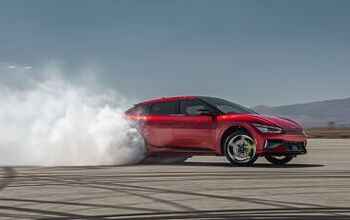



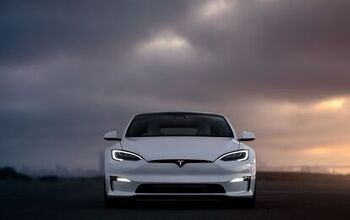
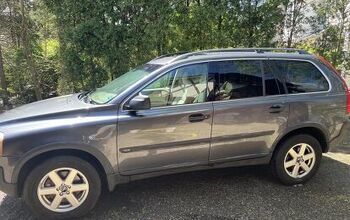
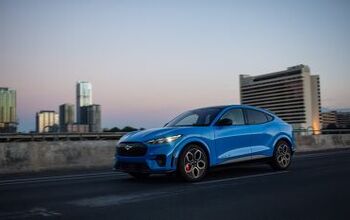
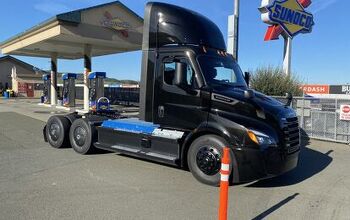




Comments
Join the conversation
"$300 billion in spending to rebuild New Orleans" Which city is mathematically certain to get swamped in another hurricane someday in the future. A city below sea level situated between a massive lake and an ocean with known seasonal hurricane activity is not a sustainable scenario. Oh yeah, and don't forget the receding shoreline. I would be ok with the Feds being the debtor in possession funding source if a real house cleaning restructuring of GM were in the works, but is anyone really talking about that? Also, is this really an industry bailout being talked about ... or a GM bailout with a Chrysler liquidation thrown in? Finally, does anyone believe $25B is the end of it? Speaking of which, how the bleep is AIG consuming over $100B in taxpayer money? What exactly is being done with that massive pile of cash? How many people in the US based auto industry raised a shout when the textile and furniture industries packed up their bags and move offshore, leaving the southern states screwed over? Don't be surprised that those same states which are now enjoying some transplant success don't feel very bad for the midwest. Then again, the furniture industry in the US was mostly based in Michigan before it retreated to the south. However it sorts out, the trend of buying massively more stuff from foreign countries than the US sells to them has run smack into the brick wall of reality. I don't care much how the shareholders are distributed around the globe, but we need to make more of our own stuff in the US of A. I don't think Red Ink Rick agrees with me though.
A little accuracy to the posts about the South: Katrina did not just damage NOLA. The French Quarter, which includes Bourbon Street, (it is a street in the Quarter) was not affected much. The Mississippi River did not flood. The beads and tits crowd at Mardi Gras is, in large part, tourists. That includes many from Michigan.